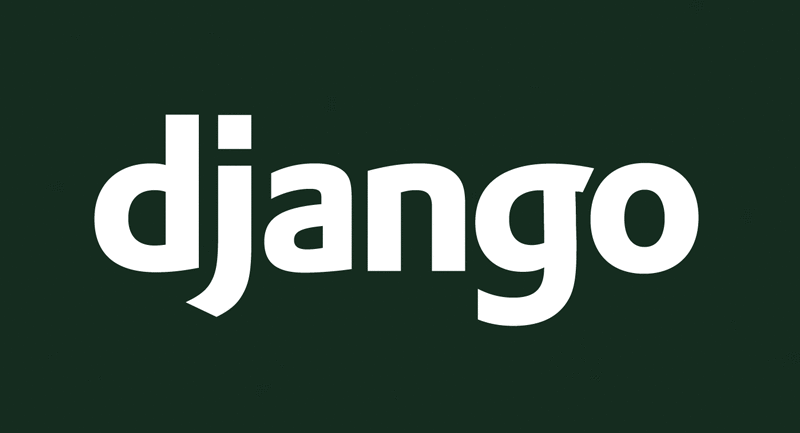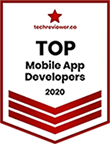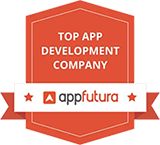Hire Dedicated Django Developers
Expert developers for seamless collaboration
Timely delivery with regular updates
Scalable solutions tailored to you
24/7 support for your projects
Dedicated managers for smooth execution
Flexible engagement models

Skilled Developers, Perfect Tech Match, Aligned with Your Project Objectives & Timelines
Django accelerates web development with its built-in tools and rapid prototyping capabilities. Its 'batteries-included' approach saves time and boosts efficiency.
Django provides secure, scalable, and easily maintainable applications. Its robust design ensures stability and simplifies future updates.
Tailored Django Development Teams for Every Project Requirement
Django API Development
Secure, stable Django APIs for interconnected web and mobile ecosystems.
Benefits of Hiring Django Developers
Expertise in design and development
Cost-efficient solutions
Fast time-to-market
Quick issue resolution
Flexible and adaptable teams
Smooth collaboration

Tech Stack Expertise of Our Django Developers
Our Django developers are experts in building robust, secure, and scalable backend systems using Python’s most powerful web framework.
 Django
Django
 Python
Python
 HTML5
HTML5 CSS3
CSS3 JavaScript
JavaScript React.js
React.js Vue.js
Vue.js AngularJS
AngularJS
 PostgreSQL
PostgreSQL MySQL
MySQL SQLite
SQLite
 Selenium
Selenium Docker
Docker Kubernetes
Kubernetes
Testimonials
The team delivered high-quality work that met our expectations in terms of design and functionality.
Why & Benefits
Join Dappinity to work at the forefront of digital innovation, collaborating with top-tier tech talent on meaningful projects for global clients. We offer a flexible, remote-friendly work environment, competitive compensation, and clear career growth opportunities. At Dappinity, you’ll enjoy continuous learning, mentorship, and recognition in a collaborative, inclusive culture that values creativity, impact, and professional development. Elevate your career while shaping future-ready solutions with us.
Why Hire Django Developers from Dappinity?
Dappinity provides expert Django Developers offering scalable, innovative, and client-focused solutions while ensuring high quality and timely project delivery.
- Expert Developers
- Agile Project Management
- Cost Effective Solutions
- Superior Software Quality
- Optimized Operational Costs
- Time Zone Compatibility
Benefits of Dedicated Django Developers
The dedicated Django Developers team at Dappinity delivers innovative, scalable, and secure solutions, ensuring seamless collaboration and future ready applications.
- Tailored Software Solutions
- Cutting Edge Technology
- Agile Development Process
- Seamless Collaboration
- Future Ready Applications
- End to End Support
Hire Django Developers Fast with Our Simple Process

Tell us what you need - tech stack, experience, timelines.

We send you pre-screened developers matched to your needs.

You interview. You decide. Start in as little as 72 hours.

Easily scale up or down. We stay flexible as you grow.
1Engagement Models (Full-time, Part-time, Hourly, Project-Based)
Choosing the right engagement model when hiring Django developers is crucial for aligning your project’s needs, budget, and timeline. Here’s how each engagement model works for Django-based applications:
Full-time Developers:
Full-time Django developers are ideal for long-term, large-scale projects that require continuous development, maintenance, and optimization. This model is suitable for complex applications, like building an enterprise-level web application, developing a custom CMS, or creating an e-commerce platform. A full-time developer ensures deep, consistent involvement throughout the project’s lifecycle, making them highly valuable for maintaining long-term growth and stability.
Part-time Developers:
Part-time Django developers are perfect for projects that require periodic updates, maintenance, or minor feature additions. This model is suitable for small to medium-sized projects where the development workload is not constant but still needs ongoing attention. Part-time developers can handle specific tasks, such as optimizing performance, adding new features, or providing support without a full-time commitment.
Hourly Developers:
Hourly developers are great for short-term, specific tasks, such as fixing bugs, enhancing existing features, or conducting performance optimizations. If you have a particular issue that requires expert attention or need to implement a small feature in an already functioning Django application, hourly developers provide the flexibility to pay only for the work done.
Project-Based Developers:
Project-based engagement is ideal for well-defined, short-term Django projects with specific deliverables and timelines. This model works best when you need a Django developer for a clearly defined task, such as building a REST API, creating a custom admin panel, or developing a small-scale web application. Project-based developers focus on completing the work according to agreed-upon deliverables and deadlines.
2Development Methodologies: Best for Django Projects
Choosing the right development methodology for your Django project can streamline the development process and ensure timely delivery. Here are the methodologies that work well with Django:
Agile:
Agile development is highly recommended for Django projects, especially those that evolve frequently or have dynamic requirements. Agile methodology allows developers to work in iterative cycles (sprints), focusing on delivering incremental improvements and gathering feedback from stakeholders at each stage. This approach is ideal for developing web applications, e-commerce platforms, or API-based projects, where frequent changes and updates are needed.
Scrum:
Scrum, a subset of Agile, is perfect for Django projects with larger teams or more complex architectures. In Scrum, the project is divided into manageable sprints, where specific tasks—such as building modules, integrating third-party libraries, or implementing user authentication—are completed. Scrum encourages close collaboration and regular feedback, ensuring that the team stays aligned with the project goals and that Django applications evolve effectively.
Waterfall:
The Waterfall model is suitable for Django projects with fixed requirements that are unlikely to change during development. It's best for small projects with well-defined goals, such as building a simple website or creating a static content management system. Since each phase is completed before moving to the next, Waterfall offers a structured, step-by-step approach to development.
3Matching Tech Stack Needs with Django Expertise
Django is a high-level Python web framework that encourages rapid development and clean, pragmatic design. Below is an overview of how Django integrates within modern tech stacks:
Core Technologies:
- Programming Language:
Django is built with Python, a versatile, powerful language known for its readability and simplicity. Python is ideal for backend development, and Django leverages its capabilities to build secure, scalable web applications.
- Django Framework:
Django provides a comprehensive suite of tools for web development, including URL routing, database migrations, an ORM (Object Relational Mapper), user authentication, and more. It follows the “Don’t Repeat Yourself” (DRY) principle, ensuring rapid development with minimal code.
Frontend Integration:
Django is typically used as the backend framework in full-stack development. While Django itself doesn’t provide front-end templates, it can easily integrate with frontend technologies like HTML, CSS, JavaScript, and modern JavaScript frameworks (React, Angular, or VueJS). Django's templating engine (Django Templates) allows for dynamic rendering of HTML, while the Django Rest Framework (DRF) facilitates the creation of RESTful APIs for the frontend to consume.
Databases & ORM:
- Relational Databases: Django comes with built-in support for databases like PostgreSQL, MySQL, and SQLite. The Django ORM (Object Relational Mapper) allows developers to interact with the database in an object-oriented way, simplifying complex queries and database operations.
- NoSQL Databases: Although Django is primarily designed to work with relational databases, it can be integrated with NoSQL databases like MongoDB using third-party packages like Djongo or MongoEngine, making it versatile enough to handle both structured and unstructured data.
APIs & Web Services:
Django’s robust support for building RESTful APIs with Django Rest Framework (DRF) allows you to easily create endpoints for your web applications, mobile apps, or third-party integrations. Additionally, Django integrates smoothly with GraphQL through packages like Graphene, which helps developers build flexible and optimized API layers for complex data fetching.
Security:
Security is a top priority in Django, and it comes with several built-in features such as user authentication, protection against SQL injection, cross-site scripting (XSS), and cross-site request forgery (CSRF). Django’s security model also supports HTTPS and password hashing, helping developers build secure applications with minimal effort.
DevOps & Deployment:
- Containerization: Django applications can be containerized using Docker, making them portable and easy to deploy across various environments.
- Cloud Deployment: Django works seamlessly with cloud platforms like AWS, Google Cloud, and Microsoft Azure. You can deploy your application using services like AWS Elastic Beanstalk or Google Cloud’s App Engine.
- CI/CD: Tools like Jenkins, GitHub Actions, or GitLab CI/CD pipelines ensure that your Django application is automatically tested, built, and deployed.
Django’s extensive ecosystem and integration capabilities make it an excellent choice for backend development, regardless of whether you're building simple web apps or complex, data-driven platforms.
4Ensuring Code Quality for Django Projects
Ensuring high-quality code is essential for building maintainable, secure, and scalable Django applications. Here’s how you can achieve top-tier code quality:
Code Reviews:
Code reviews help identify and fix issues such as performance bottlenecks, security flaws, and adherence to best practices. During the review process, developers ensure the code follows the PEP8 Python style guide and Django best practices, including proper use of Django’s ORM, efficient query handling, and adhering to security practices.
Automated Testing:
- Unit Testing: Django provides an in-built testing framework based on Python’s unittest module. Unit tests verify that individual units of code (e.g., views, models, forms) function as expected.
- Integration Testing: Integration tests ensure that the components of your Django application, such as models, views, and templates, work together as intended.
- End-to-End (E2E) Testing: E2E tests simulate real user behavior to verify the full flow of the application. Tools like Selenium or Cypress can be used to test the web application’s functionality from start to finish.
Code Linting & Formatting:
Linting tools like flake8 or pylint enforce coding standards and highlight potential issues such as unused imports, incorrect indentation, or complex code. Code formatting tools like black automatically format code according to the PEP8 standard, ensuring consistency across the codebase.
CI/CD:
Implementing Continuous Integration and Continuous Deployment (CI/CD) ensures that code changes are automatically tested and deployed. Tools like GitLab CI, Jenkins, and Travis CI integrate with your Django project to automate testing and deployment, reducing manual errors and increasing productivity.
Performance Optimization:
Optimize database queries to avoid issues such as N+1 queries and inefficient joins. Django’s built-in query optimization techniques, such as select_related and prefetch_related, help to reduce database load. Profiling tools like Django Debug Toolbar or Silk help monitor and optimize the application’s performance.
5Security & IP Protection for Django Developers
Django places a strong emphasis on security, and it is crucial to ensure that both your application and intellectual property are well-protected:
NDAs & Legal Contracts:
Make sure developers sign NDAs to protect sensitive project information and proprietary code. Legal contracts should clearly define ownership of the Django code and related assets, ensuring that intellectual property rights remain with your business.
Source Code Management:
Host your Django code on secure platforms like GitHub, GitLab, or Bitbucket. Use private repositories and enable two-factor authentication (2FA) to secure access. Regularly back up your code and have an emergency plan in place.
Access Control:
Role-based access control (RBAC) should be implemented to restrict access to sensitive code. Developers should have access only to the parts of the project relevant to their role, and access should be revoked once their involvement in the project is complete.
IP Ownership:
Clearly define ownership of all the Django code and intellectual property in your legal agreement. Use "Work for Hire" clauses to ensure that all work created by the developer is owned by your company.
6Freelancer vs Dedicated Django Developer: What’s Better for Your Project?
Choosing between a freelancer and a dedicated Django developer depends on the project’s scope, timeline, and complexity:
Freelancers:
Freelancers are ideal for smaller, well-defined tasks such as developing a specific feature, fixing bugs, or optimizing an existing Django application. They offer flexibility, fast hiring, and lower costs for short-term tasks.
Dedicated Django Developers:
For large, long-term projects such as building an enterprise web application or a custom CMS, dedicated Django developers are a better choice. They offer consistent involvement, deeper collaboration, and greater flexibility to scale as the project evolves. Dedicated developers are also better equipped for complex projects requiring regular updates, maintenance, and new feature integrations.
Engage Dappinity for Your Django Development
Partner with Dappinity to build fast, scalable, and secure backend systems using Django. Whether it’s a data driven web platform, a powerful REST API, or a complete SaaS solution, our Django developers bring deep Python expertise and industry best practices to deliver optimized apps.
600+
Project completed12+
Years Experience100%
Positive reviews92%
Customer RetentionTransparency
Strict Privacy Assurance with NDA
Talented Team of Developers
12 Months Free Support
Smooth Collaboration & Reporting
On time Delivery, No Surprises
Efficient & Adaptive Workflow
FAQs About Hiring Django Developers
Django is a high-level, open-source Python web framework that promotes rapid development and clean, pragmatic design. It helps developers build robust and scalable web applications quickly by providing a built-in admin panel, authentication system, and ORM (Object-Relational Mapping) for database management. Django is widely used because it encourages rapid development, security best practices, and scalability for large applications.
Key features of Django include:
1. Automatic Admin Interface: A built-in admin panel for managing database content.
2. ORM (Object-Relational Mapping): Allows developers to interact with the database using Python code rather than SQL.
3. Security: Django includes built-in protection against common web security issues like SQL injection, cross-site scripting (XSS), and cross-site request forgery (CSRF).
4. URL Routing: Django provides an intuitive URL dispatcher for handling URL patterns and views.
5. Template Engine: Allows dynamic generation of HTML from Django templates.
6. Form Handling: Built-in support for creating and validating forms.
Django’s ORM allows developers to define database models using Python classes. These models are automatically translated into database tables, making it easier to interact with the database without writing raw SQL queries. It supports operations like creating, reading, updating, and deleting records (CRUD), and simplifies complex queries. The ORM helps improve productivity and maintainability by reducing boilerplate code and making database interactions seamless.
Django is highly scalable and can handle high traffic volumes. It provides:
1. Database Scaling: Django supports multiple database backends, which can be distributed for scaling.
2. Caching: Django supports caching at various levels (views, template fragments, etc.) to speed up application performance.
3. Load Balancing: You can implement load balancing to distribute incoming requests across multiple servers for better scalability.
4. Database Sharding: Django supports the use of multiple databases and database sharding for more efficient data management.
Django templates are HTML files with placeholders for dynamic content. These templates use template tags, filters, and variables to generate dynamic content based on the data passed from views. Django templates are secure and efficient, and they allow for easy separation of business logic and presentation. Developers can use Django's template language to insert loops, conditionals, and filters to control how data is displayed.
Django REST Framework (DRF) is a powerful toolkit for building web APIs. It provides features like:
1. Serialization: Convert complex data types like querysets and model instances to native Python datatypes.
2. Authentication: Easy integration with token-based authentication, OAuth, and JWT.
3. Permissions: Manage user access to APIs using predefined or custom permission classes.
4. ViewSets and Routers: Simplify the development of RESTful APIs by automatically creating views and URL routing.
DRF is commonly used to build RESTful APIs and backends for web and mobile applications.
Django prioritizes security with features such as:
1. SQL Injection Protection: Django ORM automatically escapes inputs to prevent SQL injection.
2. Cross-Site Scripting (XSS) Protection: Automatically escapes user input in templates to prevent XSS attacks.
3. Cross-Site Request Forgery (CSRF) Protection: Built-in CSRF protection ensures that forms are only submitted from authorized pages.
4. Password Hashing: Django hashes passwords using secure algorithms like PBKDF2.
5. Secure Cookies: Django sets secure cookies and includes options to prevent cookie tampering.
Django provides an easy-to-use migration system to manage database schema changes:
1. makemigrations: Generates migration files based on changes to models.
2. migrate: Applies migrations to update the database schema.
Django tracks all migrations in a migrations folder within each app, making it easy to apply or roll back changes to the database schema.
Middleware in Django is a lightweight, low-level plugin system that processes requests and responses. It is used for tasks like:
1. Session management
2. User authentication
3. Request logging
4. Handling exceptions
Middleware functions are executed in the order they are defined, and they can modify request and response objects before passing them to views or returning them to the client.
Hiring a Django developer from Dappinity is simple:
1. Share your project details, including required features and timelines.
2. Get matched with highly skilled Django developers.
3. Interview and select the best candidate based on their expertise in Django, Python, and web development.
4. Begin the development process with continuous support and collaboration from our team.













